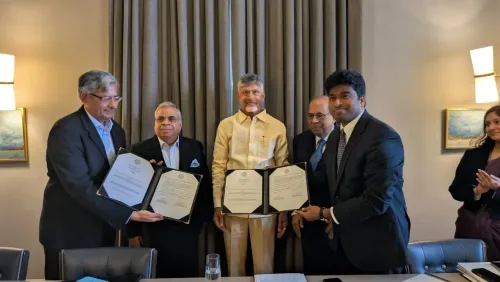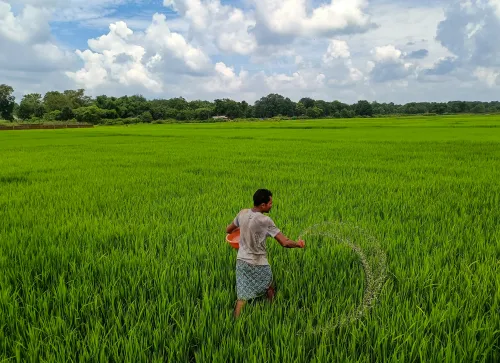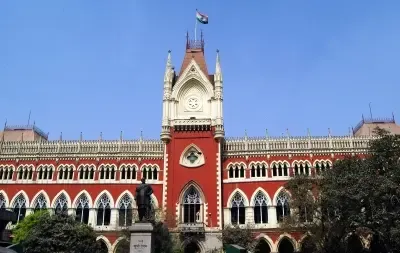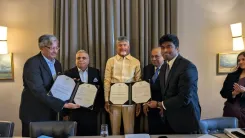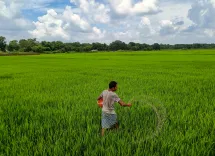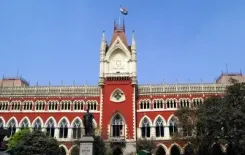TVK Leader Vijay Advocates for Indefinite Freeze on Lok Sabha Seats Based on 1971 Census
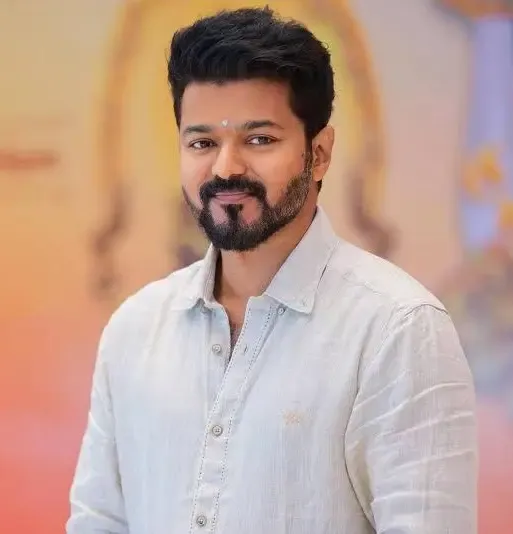
Synopsis
Key Takeaways
- Vijay demands suspension of Lok Sabha seat changes.
- Concerns over transparency in delimitation methods.
- Opposes penalizing states with effective population control policies.
- Calls for parliamentary reforms similar to UK practices.
- Stresses need for equitable financial allocations among states.
Chennai, March 5 (NationPress) Tamil superstar and Tamilaga Vettri Kazhagam (TVK) President Vijay has advocated for the indefinite suspension of Lok Sabha seats based on the 1971 Census. In his statement, he highlighted that any delimitation process using new population figures would unfairly disadvantage southern states.
Vijay pointed out that the 84th Constitutional Amendment Act has already frozen the count of Lok Sabha seats until 2026, maintaining representation in accordance with the 1971 Census.
As the Union government is anticipated to initiate the delimitation process next year, he voiced concerns over the transparency regarding the methods and criteria that would be utilized.
The TVK leader firmly opposed any revision of seat allocation based on updated population data, arguing that this would penalize states that have effectively implemented policies for healthcare, education, and population control over the last fifty years.
“Should the number of seats in southern states decrease while states like Uttar Pradesh and Bihar gain excessive representation, it would be an unfair result,” Vijay remarked.
Vijay also rejected proposals to augment the total number of Lok Sabha seats while preserving the current proportional representation.
In his view, this would merely dilute the efficiency of parliamentary proceedings.
“With 543 MPs already in the Lok Sabha, many find it challenging to voice their concerns during Question Hour. Increasing the number of seats would further limit their ability to engage in meaningful discussions, reducing them to mere ornamental figures,” he clarified.
He urged for parliamentary reforms, citing the Prime Minister’s Question Time in the British Parliament as a model.
He pointed out that India's parliamentary framework lacks a similar mechanism, leading to numerous vital bills being passed without sufficient debate.
Furthermore, Vijay contended that increasing the number of MPs would impose unnecessary financial strains on the government due to added expenses related to salaries, accommodations, and other provisions.
The actor-politician also emphasized the need for transparency in judicial appointments, accusing the Centre of disregarding Collegium recommendations for the Supreme Court and High Court judges.
He noted that only a retired Supreme Court judge can serve as the chairperson of the Delimitation Commission, questioning the fairness of appointing the Chief Election Commissioner, who is also a member of the commission.
Vijay insisted that election commissioners should be appointed through consensus rather than arbitrary governmental decisions.
He further asserted that the current method of allocating Lok Sabha and Rajya Sabha seats based on population contradicts the principle of cooperative federalism.
Drawing a parallel with the United States Senate, where each state has two representatives, he proposed consulting constitutional experts to consider a similar framework for the Rajya Sabha.
He also insisted that delimitation should only proceed with consensus from all states, rather than being unilaterally enforced by the Centre.
In conclusion, Vijay criticized the government's financial allocation strategies, asserting that resources should be distributed equitably, devoid of political biases.
He remarked that while India's Constitution was intended as a federal system with a unitary inclination, the nation has matured into a stable democracy. Therefore, states should now receive greater administrative and financial autonomy for more effective governance.

